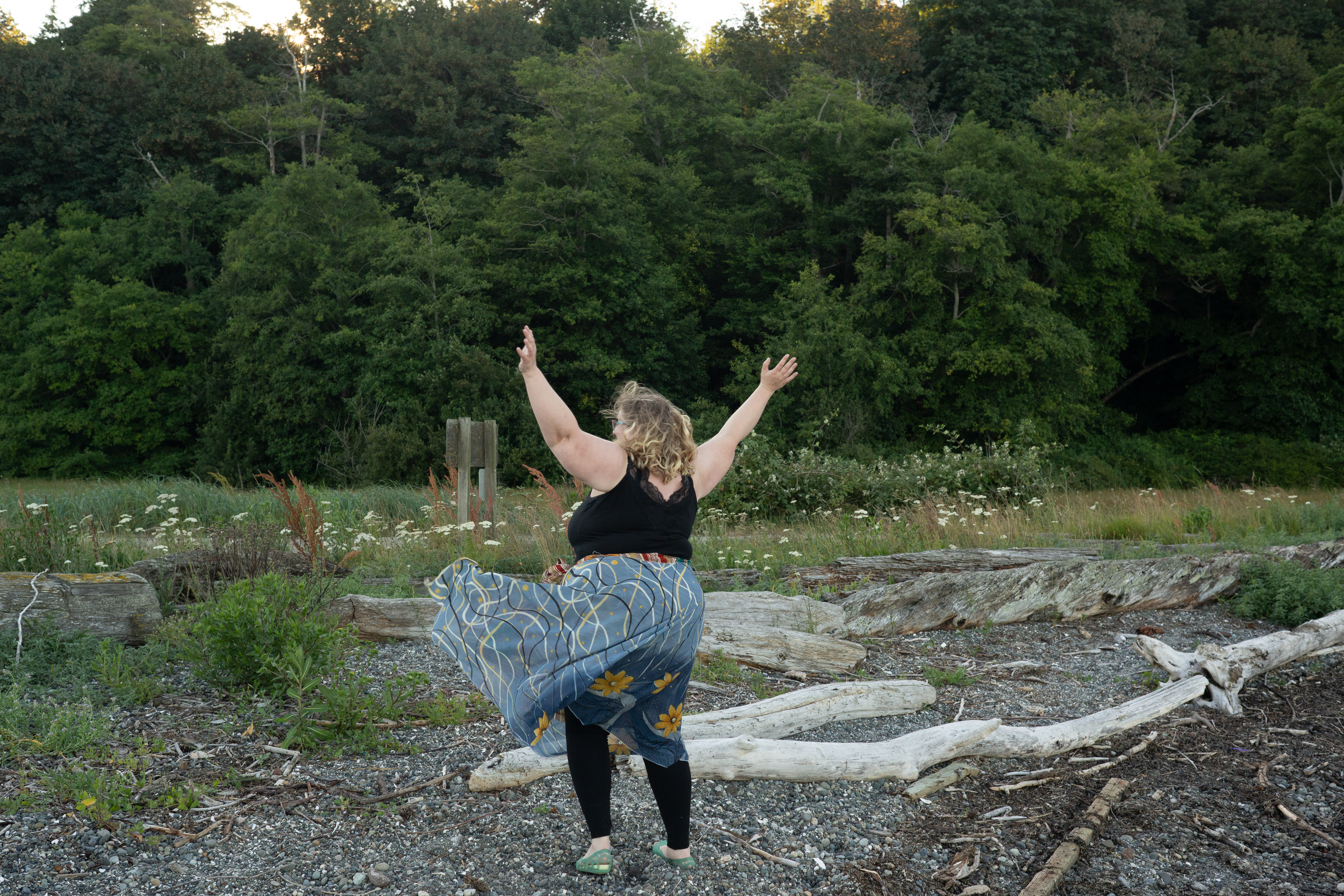Read the blog
Will I ever love my body again?

Photo courtesy of RepresentationMatters.me
“I used to love my thinner body, even though I hated dieting. Will I ever love my body again?”
This is an occasionally-heard refrain heard from some of the brave souls who have chosen to give up the pursuit of weight control through dieting and have instead opted for the unknown of what their bodies will do in response to a more peaceful relationship with food.
To review, there are three possible outcomes of giving up dieting:
- You may lose weight.
- You may gain weight.
- Your weight may stay the same.
For anyone experiencing any of these outcomes (even weight loss), the work of body acceptance is necessary to help clear the path to a more peaceful relationship with eating. This is the work of body image healing.
I love the goal of body neutrality as a result of the body image healing work that we do. Body neutrality, to me, means you don’t have to feel in love with your body or how it looks, but you don’t loathe it either. You’re able to see your body as an instrument, not an ornament, and get on with your life and all the things you want to experience in it.
But sometimes we wonder if we will ever get to a place of loving how our bodies look. For some, body neutrality doesn’t feel like enough, and they remember a time when they were maintaining a lower body weight, getting societal accolades, and enjoying the way their bodies looked to the world.
Rarely do we seem to question why we need to love how our bodies look. Would we have this same desire to love our appearance if there weren’t such strong cultural messages about beauty standards? Would this need exist if we were stranded alone on a deserted island like Tom Hanks in the movie Castaway? I strongly believe the answer is no.
That’s why we need to talk about self-objectification, which is experiencing one’s body not from the inside, but from the outside, looking in. It arises from an unfair system in which women are judged more for how they look and not for what they do (one of the many unpleasant side effects of patriarchy).
We are presented with a relentless barrage of media images of women and messages around what constitutes the “right” look (and from the mere absence of other types of images, we can easily infer what constitutes the “wrong” look). It’s so easy to constantly compare ourselves to these images and develop that outside-in-gaze that becomes more dominant than the experience of being in our bodies.
I think it’s lovely to be able to look in the mirror and say, “Yep, good outfit” or “Awesome style I’ve got going today.” That’s a world away from, “I love how my body is mirroring unrealistic cultural beauty standards by being as small as it can today!” The first two statements are about objects on your body; the latter statement is about your body as an object.
For me, opting for body neutrality and appreciation of its usefulness was a far saner goal than needing to love how I looked on a physical level, because I no longer wanted to be a mere object to be admired.
I don’t actually think we need to love how our bodies look to live a richer life. We do need to understand why that desire exists, though.
Here are two great blog posts about self-objectification from one of my favorite non-diet, pro-body sites, Beauty Redefined:
Selfies and Self-Objectification
Running from Self-Objectification
I hope you go straight down the rabbit hole of this site because they have so many wise things to say on the subject of self-objectification!
Need help managing your diabetes, pre-diabetes, or insulin resistance?
Care for Diabetes is back! Two tracks are available, starting on September 11 and September 13. Rebecca Scritchfield, dietitian and author of the book Body Kindness, and I will be providing sound and compassionate non-diet, non-restrictive, non-weight-focused advice and support for managing your blood sugars. Click on the image below for all the details about this 4 week virtual counseling group and how to register!
Thank you to Lindley Ashline at RepresentationMatters.me for her free stock photo images!
Subscribe and get my free guide:
Why you overeat …and what to do about it
Click here if you just want my newsletter!

Comments Off on Will I ever love my body again?